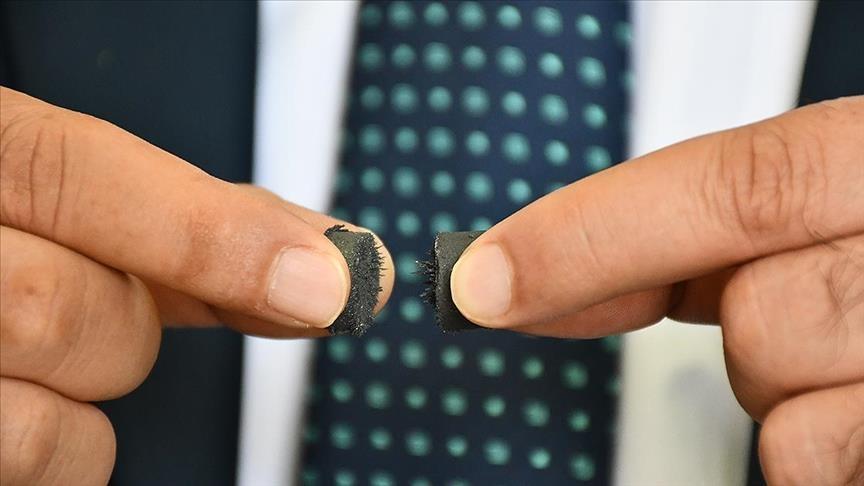China's attempts to monopolize rare earth technologies constitute the most recent example of economic warfare that could hamper global stability, according to an official from Turkish Miners Association.
The "green economic/technological growth" measures that have been put in place by nations to counteract global climate change are causing an increase in international frictions.
"Along with conflict in the Middle East, between Palestine-Israel and Ukraine-Russia, and the rise of international terrorism, the globe is also threatened by economic wars without the use of military force," Caner Zanbak, Environmental Coordinator of Turkish Miners Association, said.
Global trade disputes in raw materials continue among developed countries, triggered by Japan's ban on China's rare earth element exports in the early 2010s over Japan's capture of Chinese fishing boats.
After Japan seized Chinese fishing boats in the early 2010s, China prohibited exporting rare earth elements, which led to ongoing tension among industrialized nations over global raw material commerce.
In an attempt to undermine China's semiconductor industry while providing billions of dollars in subsidies, the US administration published a comprehensive set of regulations on Oct. 10, 2022.
The Netherlands, one of the world leaders in the development of such chips, placed severe restrictions on the export of production equipment to Chinese chipmakers in addition to the US implementation.
- "China's ban is latest example of economic warfare"
In addition to the existing technology ban, China, the world's largest producer and processor of rare earths, has placed more restrictions on the technology used to extract and separate rare earths over the past year in an attempt to resolve the trade friction with the US.
"Especially in the last five years, international frictions have been increasing rapidly due to the 'green economic/technological growth' policies implemented by developed countries within the scope of combating global climate change," Zanbak said.
"China's ban on the export of technology for the manufacture of magnets containing rare earth metals, citing 'protection of national security and public interest', is the latest example of economic warfare," he added.
Zanbak stated that the purified metallic forms of certain rare earth elements are the most important raw materials in the production of permanent magnets used in new generation energy production and motor power.
He also underlined that both the US and the EU, which are well-known to be fierce rivals in the worldwide markets for the manufacturing of green energy, are in a panic over the prohibition of technology transfer to process rare earths.
"However, such export bans imposed by China are not limited to rare earths," Zanbak said.
The Chinese Ministry of Commerce added technologies for the production of rare earth calcium oxyborate to its "Catalogue of Technologies Prohibited and Restricted from Export".
In August raw materials for computer chips include gallium and germanium added to The Chinese Ministry of Commerce's catalogue while various types of graphite, samarium-cobalt magnets, neodymium-iron-boron magnets, cerium magnets and rare earth calcium oxyborate exports were added to the list since Dec. 1.
"The catalog lists the preservation of China's national security and the general welfare as among its objectives," Zanbak said.
- "Strategic collaborations beneficial for production of metallic rare earths"
More sophisticated technologies, which have an export ban outside of China, will need to be employed or developed in Türkiye to extract metallic elements from rare element oxides, Zanbak added.
Through the Beylikova Fluorite, Barite, and Rare Earth Elements Pilot Plant, which opened in April and is situated in the central Turkish province of Eskisehir, Türkiye hopes to provide 1,200 tons of vital minerals to the local economy.
In the first phase, the facility will focus on the production of seven rare earth elements and their oxides, which will be manufactured for the first time. Rare elements such as fluorite, barite, lanthanum, cerium, praseodymium, samarium, gadolinium, europium, neodymium, and 17 other rare earth elements will be subject to production at the facility.
The Beylikova district is the second-largest rare earth element field with 694 million tons after the Bayan Obo field in China.
He also stated that China's export restrictions will not have a significant impact on Türkiye's manufacturing sector in terms of raw material supply.
"When the facility in Beylikova is developed, this valuable 'intermediate product' will become a critical and strategic raw material that developed countries will pursue," Zanbak said and added, "Instead of exporting rare earth oxides to be produced in Beylikova only as an intermediate product, it is beneficial for developed countries, including China, to develop strategic cooperation for the production of higher value-added 'metallic rare earths' in Türkiye."
Zanbak pointed out that although the emphasis is on recycling, the needs that will increase exponentially must be met by the mining sector in countries with natural resources.
He noted that it would be beneficial for Türkiye to follow a policy of exporting critical raw materials as high value-added raw materials instead of raw ore exports as much as possible.
By Duygu Alhan
Anadolu Agency
energy@aa.com.tr


